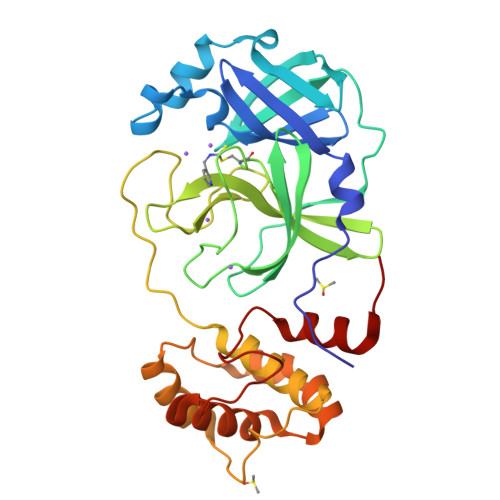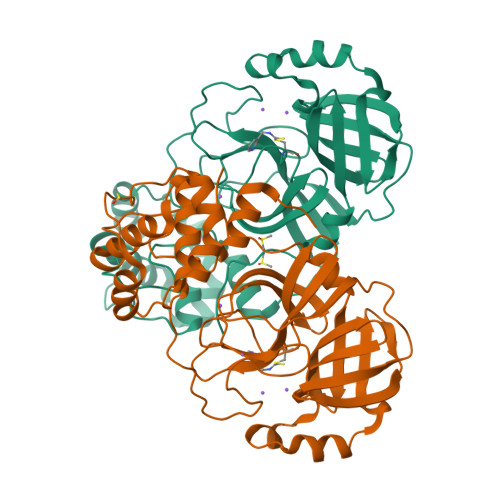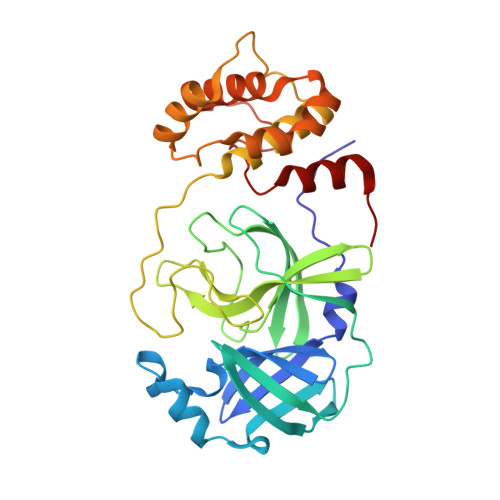Novel dithiocarbamates selectively inhibit 3CL protease of SARS-CoV-2 and other coronaviruses.
Brier, L., Hassan, H., Hanoulle, X., Landry, V., Moschidi, D., Desmarets, L., Rouille, Y., Dumont, J., Herledan, A., Warenghem, S., Piveteau, C., Carre, P., Ikherbane, S., Cantrelle, F.X., Dupre, E., Dubuisson, J., Belouzard, S., Leroux, F., Deprez, B., Charton, J.(2023) Eur J Med Chem 250: 115186-115186
- PubMed: 36796300
- DOI: https://doi.org/10.1016/j.ejmech.2023.115186
- Primary Citation of Related Structures:
7NTQ, 8AEB - PubMed Abstract:
Since end of 2019, the global and unprecedented outbreak caused by the coronavirus SARS-CoV-2 led to dramatic numbers of infections and deaths worldwide. SARS-CoV-2 produces two large viral polyproteins which are cleaved by two cysteine proteases encoded by the virus, the 3CL protease (3CL pro ) and the papain-like protease, to generate non-structural proteins essential for the virus life cycle. Both proteases are recognized as promising drug targets for the development of anti-coronavirus chemotherapy. Aiming at identifying broad spectrum agents for the treatment of COVID-19 but also to fight emergent coronaviruses, we focused on 3CL pro that is well conserved within this viral family. Here we present a high-throughput screening of more than 89,000 small molecules that led to the identification of a new chemotype, potent inhibitor of the SARS-CoV-2 3CL pro . The mechanism of inhibition, the interaction with the protease using NMR and X-Ray, the specificity against host cysteine proteases and promising antiviral properties in cells are reported.
Organizational Affiliation:
Univ. Lille, Inserm, Institut Pasteur de Lille, U1177 - Drugs and Molecules for Living Systems, F-59000, Lille, France.



















